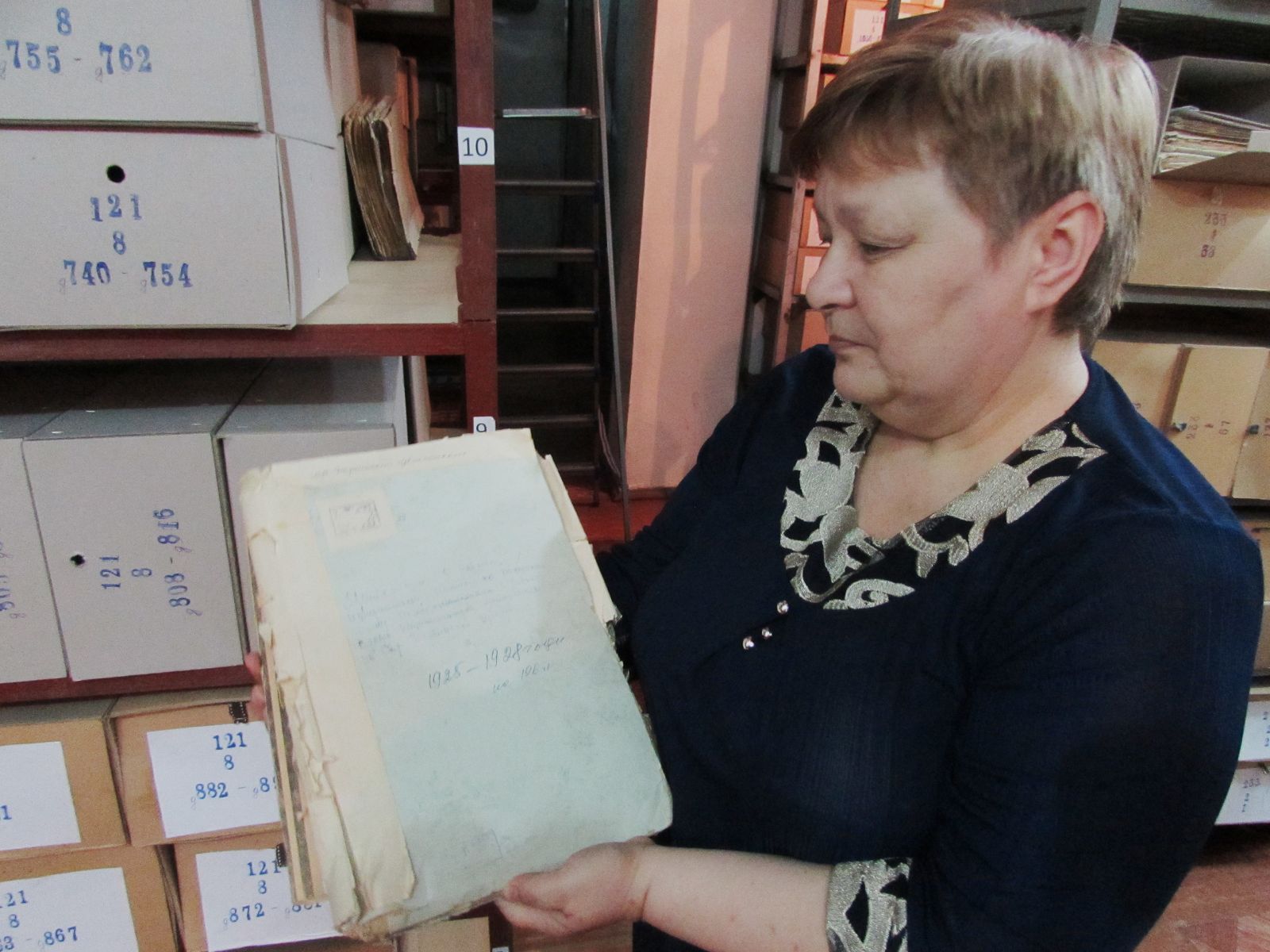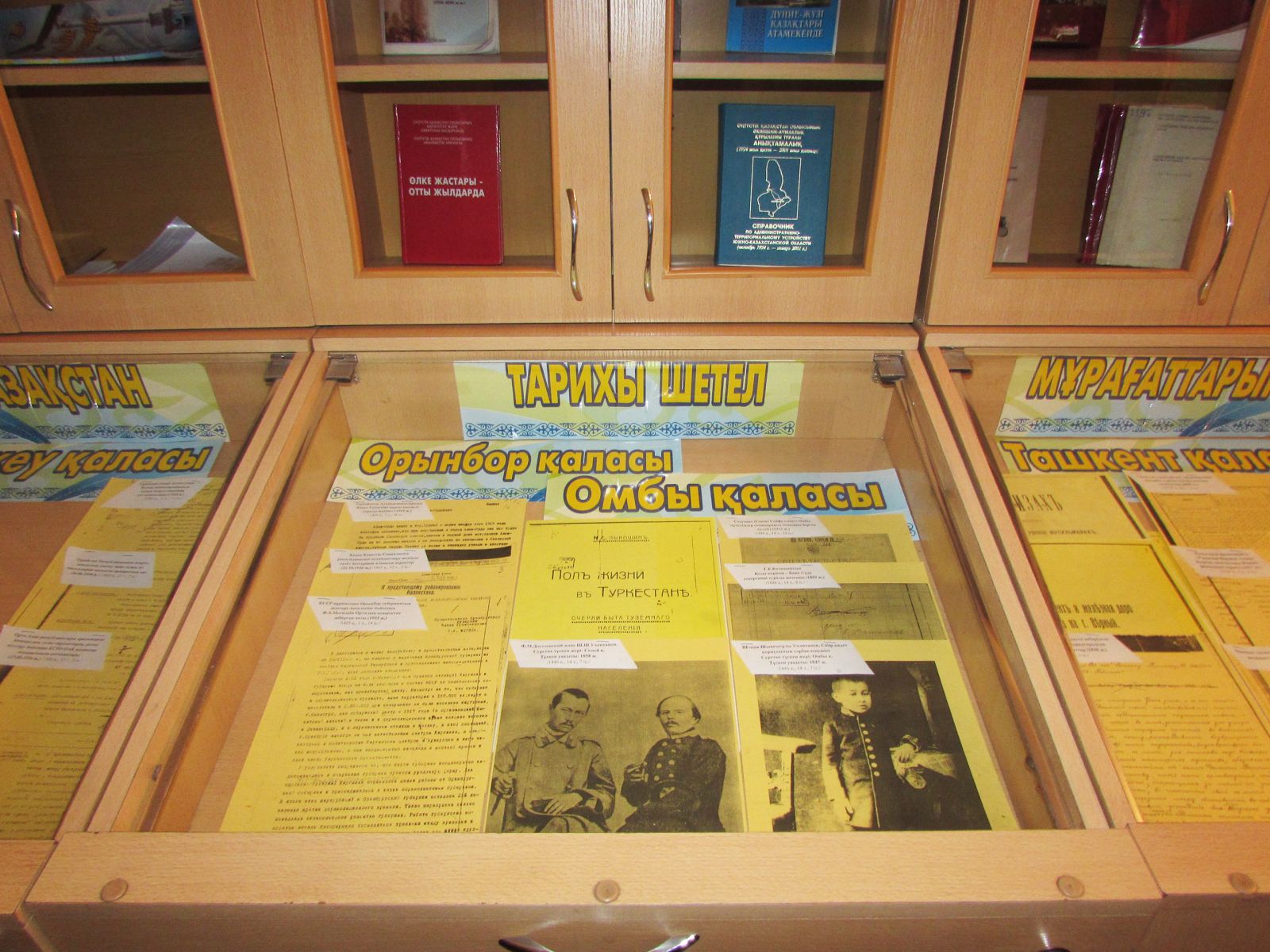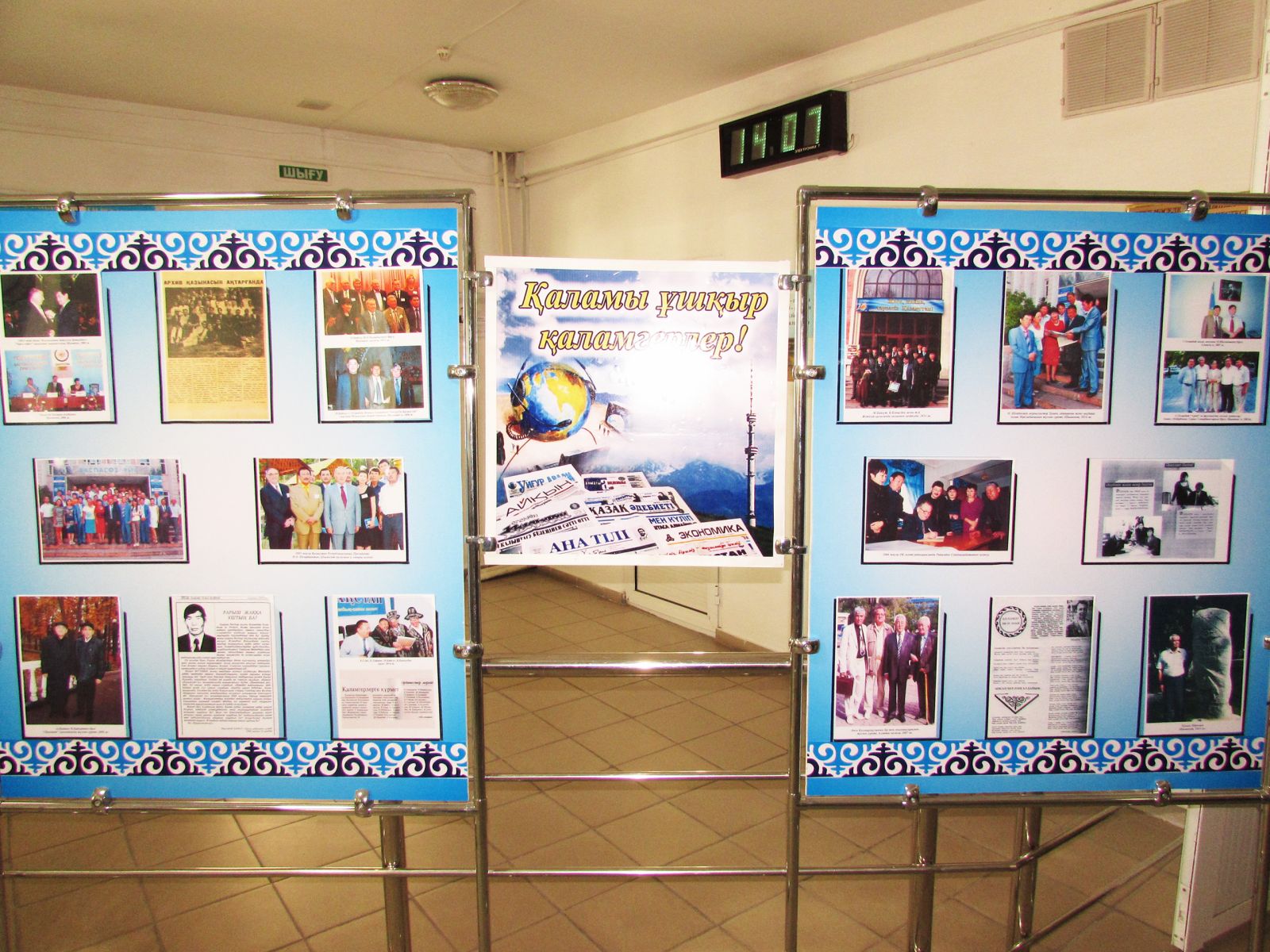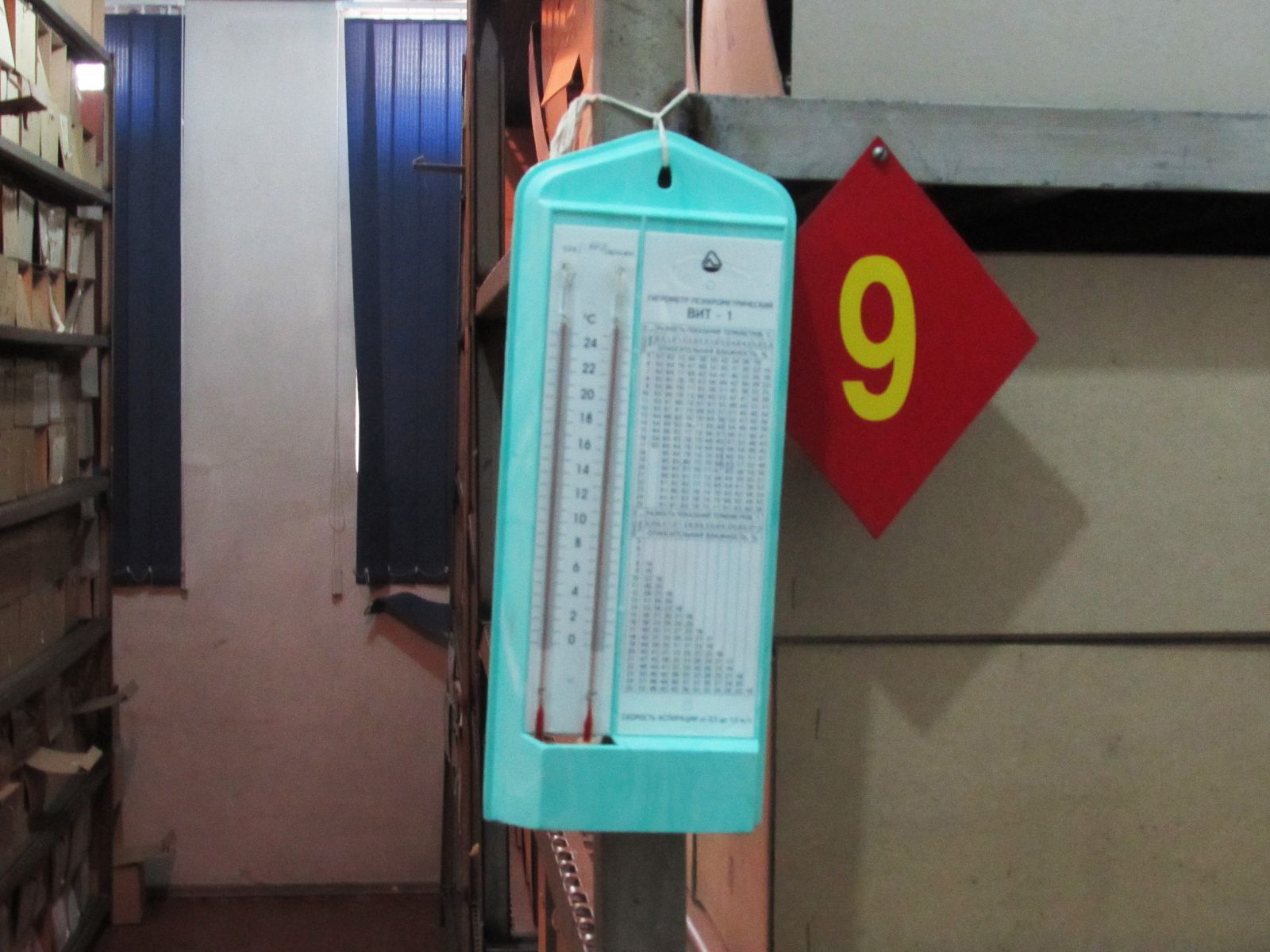One of the largest archives of Kazakhstan is the State Archive of the South-Kazakhstan region. Director of the State Archive of the South Kazakhstan Region Aidyn Kenesbayevna Issatayeva, despite the heavy employment and tight schedule, agreed to meet and talk about the leading archival institution of the region. As it turned out, the regional archive has a 90-year history, it has something to be proud of and to share, a lot of interesting material.
Reference: In October 1926, the Syrdarya Provincial Archival Bureau was established in Chimkent. Thus began the history of the State Archive of the South Kazakhstan region. In the first year of work, 13 funds were collected. January 17, 1928 with the formation of the Syrdarya District and the Syrdarya Province Archival Bureau was reorganized into the Syrdarya District Archival Bureau. Despite the difficult conditions of work, archivists by the end of 1929 collected 143 funds: 22 pre-revolutionary and 121 fund of the Soviet period. On January 27, 1931, the Chimkent city archive was opened. In 1934, the State Archive of the South Kazakhstan Region was established. For the regional archive was allocated a room and approved the staff of 7 people. From Central Records Office of KazSSR 77 funds and 8000 units of storage were transferred from Shymkent institutions 11 funds and 2606 units of storage. In 1962 the regional archive moved to a new standard building. In 1984, an insurance fund for microfilm copies was created for particularly valuable documents. It was microfilmed 3,060 cases, 350,376 frames of negatives were printed. At the end of 1988 a new building of the Oblast State Archive was built. With 21 thousand items of storage, restrictions on access to the state archive funds were lifted.
In 1992, by the decision of the Head of the South Kazakhstan regional administration, the archive department was transformed into management of the archives and documentation of the regional administration, with the restoration of the historical name of the region - the regional state archive became known as South Kazakhstan.
- We have the largest archive: 1290 funds, about 455 thousand units of storage, Aidyn Kenesbayevna proudly noted.
Currently, the regional archive consists of 5 departments and 1 sector:
- Department for collecting / summarizing the documents of the fund;
- Department of accounting and security of documents;
- Department for the use and publication of documents;
- Information-methodical department;
- Department of introduction of archival technologies;
- Sector for the execution of requests.
Employees deal with the issues of the formation, storage and use of documentation from the archive funds. In a day we receive about 100 applications. We respond to them, we give information.
The documents of the South Kazakhstan Regional Archive contain a variety of information on the most important events in the history of the region. These are documents about the civil war and the establishment of Soviet power in the province, about the fighting on the trans-Caspian front. Documents of the provincial, district and regional land administrations on the organization of companies and partnerships for the joint processing of land, for the conduct of collectivization characterize the transformation in agriculture. In the funds of planning and statistical agencies there are perspective plans for the province, the region, natural and geographical and historical and economic surveys of the Chimkent Uyezd, information on the movement of the population of the county and province of the city. A significant number of archive documents cover issues of national-state delimitation of the republics of Central Asia and Kazakhstan in 1924-1925.
Of particular interest are the documents of the oldest industrial enterprises of the chemical-pharmaceutical and lead plants, the "Lengerugol" trust, and the "Achpolimetall" plant. Documents from the period of the Great Patriotic War show the heroic deed of the Soviet people which is reflected not only in official documents, but also in personal documents of participants in the Great Patriotic War.
The archive continues to work on the search for information on the preparation of a directory on the location of documents on personnel and the introduction of the data bank "Locations of documents on personnel" in the program.
They have a page in the social network Facebook where information on the archive and events is published in a timely manner.
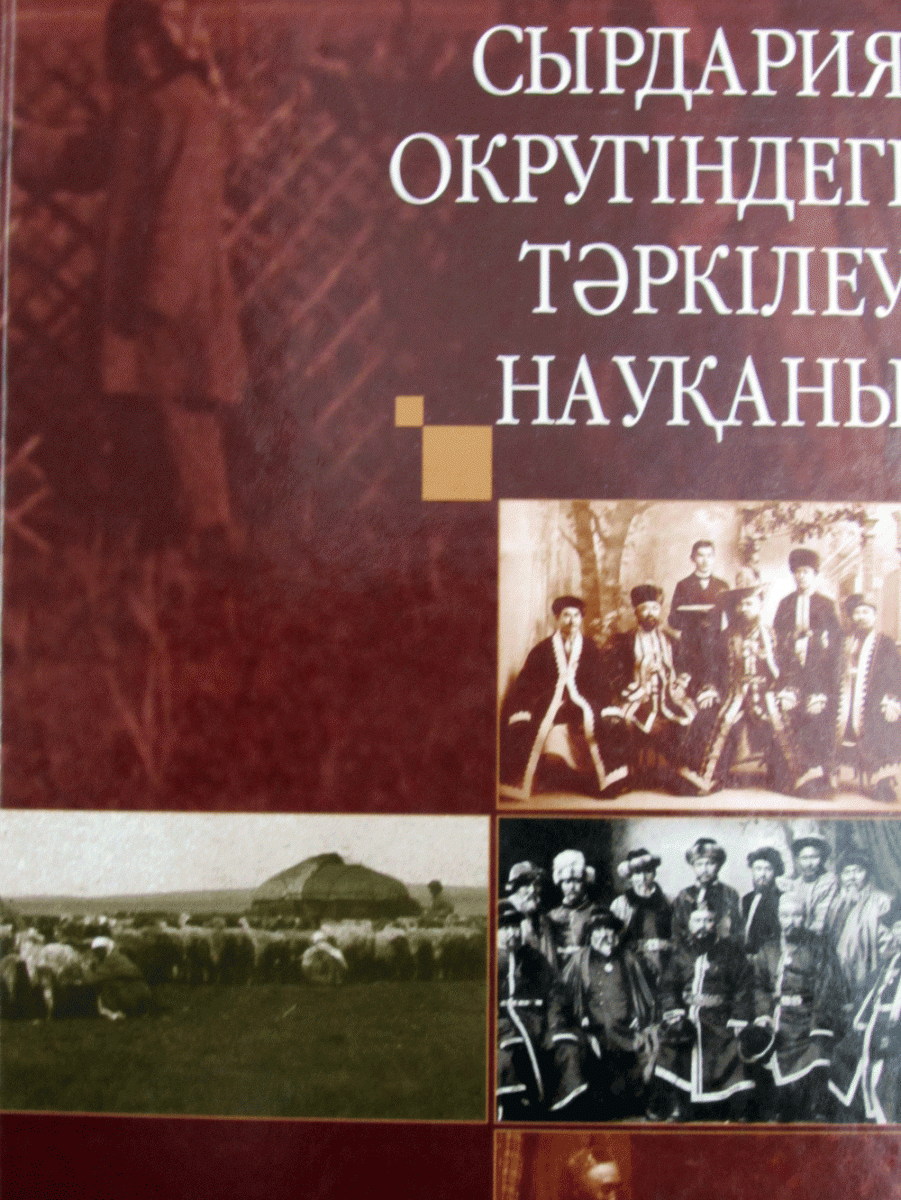
Volume I of the collection of documents and materials "Confiscation in the Syrdarya District" was published, dedicated to the confiscation of Bay (the rich) property in the Kazakh steppes. Our experts collect material in the Ural regional archive on the formation of Volume II. As a result of the events dedicated to the 90th anniversary of the archive service of the South Kazakhstan Oblast, a brochure is being prepared for publication.
In October 2017, we plan to hold a scientific conference "Descendants of the Great Turan". The director of the archive shared this very interesting information with us.
Then, archivist of the highest category Kichkembayeva Halima Khairullovna, one of the oldest employees of the archive, joined us.
- Halima Khairullovna, how is the collection of documents from foreign archives formed?
- Thanks to the "Cultural Heritage" program, archivists traveled to the foreign archives of Tashkent, Moscow, Omsk, Orenburg, from where they brought documents from the pre-revolutionary period. For example, in order to collect documents on the history of Kazakhstan in February 2017, a group of researchers (head of the State Institution "State Archive of the South Kazakhstan Region" A. Issatayeva, associate professor of the department "History of Kazakhstan" SKSU named after M. Auezov, candidate of historical sciences G. Tleukulov, head of the collection department of the National Archive Foundation M. Shymyrbek and archivist of the highest category H. Kichkembayeva) visited the Republic of Uzbekistan, visited the Fundamental Library of the Academy of Sciences of the Republic of Uzbekistan, the Fundamental Library of the Pedagogical University named after Nizami, scientific library of the Institute of Oriental Studies of the Academy of Sciences of the Republic of Uzbekistan, the National Library named after Alisher Navoi. Information was collected from rare books and newspapers on the history of Kazakhstan, the Turkestan Territory and the Syrdarya region. In total, about 600 pages of copies of documents were collected. Unfortunately, Tashkent does not particularly welcome us. Basically, we go to libraries in Tashkent, while it is allowed, and of course it's difficult to get to the archive.
- Do you keep the documents of foreign funds in a separate fund?
- Documents of the pre-revolutionary period are kept separately, this fund is 1129, and the fund 1169 contains documents of the 30-40-ies, i.e. the Soviet period. From the earliest funds of the regional archive one can single out: revolutionary committees, executive committees, military administrative bodies, justice departments, planning commission department, financing institutions. Unique archive documents should be studied, described and published on your portal.
- How is the digitization of documents?
- We started recently. Since 2013 the electronic archive has been created. The digitization of 132 thousand units of storage is planned. To date, 2500 cases have been digitized. Basically, these are documents of the first category. This is not much, but the reason is that, firstly, you need good professional equipment and, secondly, few people.
- What concerns the documents of the first category?
- These are the documents of the leading institutions of the region: the Chimkent Regional Executive Committee, the City Executive Committee, the Regional Committee, local administrations, that is, especially valuable documents.
- Surely you have documents, funds of personal origin?
- Yes, we have them. This is a personal fund of veterans who participated in the Great Patriotic War.
- This year is celebrated the centenary of the Alash movement. Has your archive prepared documents for this event?
- Oh sure. We collected information on 23 representatives of the national intelligentsia from all over Kazakhstan.
Gradually we moved to the methodical room. In the methodical cabinet of the archive there are expositions of the exhibition "History of Kazakhstan in foreign archives", consisting of materials delivered from foreign archives. Nurzhanova Ainur Kairatkyzy, head of the information and methodical department of the regional archive, introduced us to this exhibition.
- This exhibition presents copies of the materials of foreign archives, says Ainur. For example, the first exposition is devoted to the documents of the Moscow archive. The second exposition is documents from the Orenburg and Omsk archives, and the third exposition is documents from Tashkent.
You see a photo of Dostoevsky with Valikhanov, documents about life in Turkestan, a photo of Chokan Valikhanov on admission to the Cadet Corps.
You see a travel journal about the journey from Turkestan through Betpak-dala to Akmola in 1870.
Report on the opening of medical stations in Shymkent Uyezd, Sultanbek Khodzhanov's note on the increase of the scholarship to Magzhan Zhumabayev (1923).
Resolution of the meeting of the commission on the prohibition of kalym (1925)
After a short review, after satisfying our professional interest, we descended to the foyer of the institution where the exhibition was located.
June 26, 2017 for the Day of Journalism was organized photo exhibition from the documents of the private archive fund. The exposition was prepared according to documents of personal origin. The basis of the exhibition was made up of documents from the personal funds of 12 journalists from Shymkent and the South-Kazakhstan region. The photo shows members of the Union of Journalists of the Region, an article by Yu. Kungurtsev, Mukhamedzhan Rustemov in a photo with Shamshi Kaldayakov, Baidaly Konysbek, Orynbek Shoybekuly, Yuri Kungurtsev, the House of Press.
The holy of holies of any archive is a repository. To get there it is difficult. But we succeeded. Bektasheva Flura Nizametdinovna - head of the archival repository. In the repository there are 50 funds, mostly especially valuable documents, which are included in the first category.
- How do you meet the requirements for storage of documents?
- Yes, we have the appropriate temperature and humidity regime.
Documents are all in boxes, they are patched, and they must be stored in a dark room, so the windows are darkened so that daylight does not fall.
In summer we put water, moisten the storage.
The archive works and is waiting for its researchers!
Translated by Raushan MAKHMETZHANOVA
.JPG)
